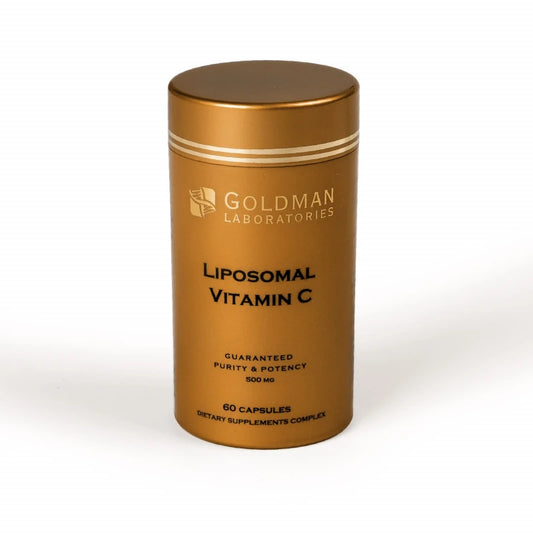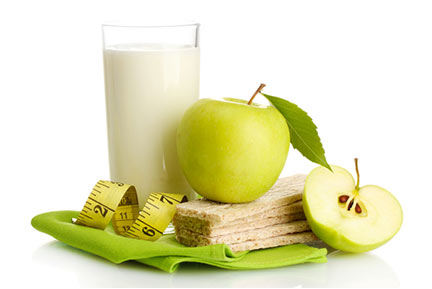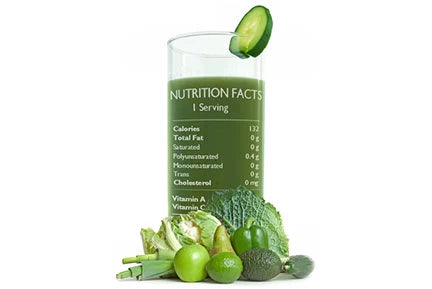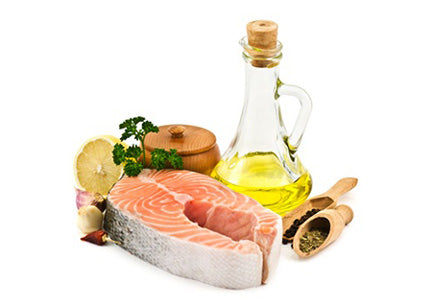 What are the main benefits of Vitamin C?
What are the main benefits of Vitamin C?
Vitamin C is also known as L-ascorbic acid. It is naturally present in many plants. Vitamins are complex substances that act as co-factors in many chemical processes. Though they do not provide energy, but without them, many chemical reactions in the body cannot occur. Thus, vitamin C is needed for protein metabolism, collagen synthesis (connective tissues), production of L-carnitine, has a vital role in wound healing and immunity. It is a potent antioxidant. It also plays a role in the regeneration of other antioxidants like alpha-tocopherol (1).
Looking back into time- history of vitamin C
Signs and symptoms of vitamin deficiency were known long ago, and Hippocrates was the first one to
describe scurvy. However, in those early days, people did not know the causes of scurvy. Scurvy is a condition of bleeding gums, slow healing wounds, loose teeth, bleeding under the skin. It can even kill a person.
Scurvy became a huge problem when people started sailing to long distances, especially from the 15 th century onwards. It is estimated that scurvy killed about 2 million sailors. It was only in the mid-18 th century the British sailors recognized its relationship with deficiency of fresh fruits and vegetables.
Further experiment showed that citrus fruits like oranges and lemons were exceptionally good at preventing scurvy (2).
By the early 20th century, researchers had a good understanding of vitamin C. It was finally isolated, and its chemical structure was defined in 1930 by Szent-Gyorgyi. In 1933 ascorbic acid was synthesized, and the era of industrial production of vitamin C began (3).
Why humans require dietary vitamin C or its supplements?
 Most of the plants and animals can produce Vitamin C according to their needs, but humans are an exception as they lack such a capability. It means that all of vitamin C should come through dietary intake or supplements.
Most of the plants and animals can produce Vitamin C according to their needs, but humans are an exception as they lack such a capability. It means that all of vitamin C should come through dietary intake or supplements.
Another important reason is that our body cannot store much vitamin C. On average, adults have a pool of about 1.2 to 2 gms of vitamin C. Vitamin C has an average half-life of 10 to 20 days. And each day, about 1 mg/kg of vitamin C is lost to the metabolic activities. It means that in some individuals, its deficiency can occur quickly. Therefore, vitamin C should regularly enter the body either with diet or in the form of supplements (4).
Sources of vitamin C and daily required intake
Most plants and animals can produce vitamin C according to their needs, except human and some fruit-eating animals like apes, bats, and so on. It is in abundance in citrus fruits like lemon, oranges, grapefruit. Most other fruits also have vitamin C like melon, papaya, strawberries, mango, raspberries, and cherries. It is also found in vegetables like tomatoes, broccoli, cabbage, red and green peppers.
However, animal meat is not a good source of vitamin C, as it contains only a small amount of it, and that too is lost in the cooking process as vitamin C is thermolabile.
In the US, recommended daily intake for vitamin C is 90 mg for adult men and 75 mg for adult women. Though even smaller amounts will be enough to prevent deficiency. On the other hand, in disease conditions, or for preventing certain disorders, much higher dosages may be required.
Vitamin C is in abundance in many fruits and vegetables; one can learn more about its content in various food products from the USDA database(5).
Vitamin C role in health, and its deficiency
antioxidant that helps protect the body from numerous disease conditions. Complete role of vitamin C in health is still not understood. However, keeping in mind the benefits that come with a diet rich in fruits and vegetables, one can safely conclude that it will lower risk of heart diseases, stroke, cancer, seasonal ailments, inflammatory conditions, metabolic disorders, and prolong life (6).
Vitamin C is necessary for the production and maintenance of collagen, an essential component of connective tissues. Almost one-third of all body proteins are in the form of collagen. Collagen is essential for healthy gums, teeth, skin, bones, tendons, ligaments, cartilage, heart valves, blood vessels, eye lens, vertebral discs, and much more.
Without vitamin C, the body cannot manufacture enough of collagen, causing a disease called scurvy. It was the low production of collagen that contributed to many fatal outcomes in sailors in olden days.
Vitamin C is also required to produce carnitine. Carnitine plays an important role in cellular energy production, as it helps in the transportation of fatty acids into mitochondria — low carnitine results in chronic fatigue, irritability, reduced libido, metabolic disorders, and much more.
Vitamin C is required to produce certain neurotransmitters, and optimal working of hormones. It helps in conversion of dopamine to norepinephrine. It is necessary for maintaining optimal activity level of hormones like alpha-melanotropin, cholecystokinin, vasopressin, oxytocin, and much more.
Vitamin C is necessary for the conversion of cholesterol to bile. It means that its deficiency may lead to the accumulation of cholesterol in the liver, formation of bile stones, and higher levels of cholesterol in the blood.
Vitamin C also has a role in maintaining iron levels. It promotes absorption of dietary iron.
Main benefits of Vitamin C
Helps prevent the common cold and its complications
Vitamin C is commonly added to over-the-counter remedies, and other formulation used to prevent and even treat the common cold. It is suggested that 1-2 g of it may help prevent the common cold or reduce the severity of its symptoms.
 There is moderate scientific evidence that vitamin C can help in the common cold in many ways. Thus, a systematic review published in the Cochrane review found that supplementation of vitamin C can reduce the duration of the common cold by about 8% in adults and 14% in children. Vitamin C also reduced the severity of symptoms in most of the cases.
There is moderate scientific evidence that vitamin C can help in the common cold in many ways. Thus, a systematic review published in the Cochrane review found that supplementation of vitamin C can reduce the duration of the common cold by about 8% in adults and 14% in children. Vitamin C also reduced the severity of symptoms in most of the cases.
The study concluded that though the routine use of vitamin C for the prevention of cold is not justified, it can be taken during the high-risk times to reduce both the risk of contracting cold and reduce the severity of its symptoms (7).
Vitamin C is also known to boost immunity, which may have a role in preventing complications of cold or even other seasonal infections. It seems that vitamin C increases the proliferation of T-cells in reaction to various infections, thus helping fight microbes (8).
One of the common complications of cold or other seasonal respiratory infections is pneumonia. Certain population groups are more prone to such complications. There is some evidence that vitamin C supplementation may help reduce the risk of pneumonia, especially in those with low dietary intake of vitamin C (9).
Accelerates wound healing
Since it enhances the production of connective tissues by boosting the production of collagen, it may play a role in improving wound healing. It may have a role in the treatment of acute trauma in the post-surgical phase. It may also help with chronic ulcers (10).
Good for heart health
Cardiovascular diseases are among the leading cause of mortality and morbidity globally, and it seems that vitamin C may help reduce their incidence. This is the reason why heart specialists recommend consuming more fruits and vegetables. Vitamin C may help improve heart health in many ways.
Vitamins C is not a magical solution for preventing heart diseases. However, its adequate intake through diet and supplementations over the years may make a huge difference. Thus, in one of the studies published in the Journal of the American College of Cardiology, it was found that there is a modest relationship between the adequate vitamin C intake and lower risk of heart disease. It was a study with a follow-up period of 16 years (11,12).
One of the ways in which it can reduce the risk of heart disease or prevent their progression is through it is a positive effect on the lipid profile and other metabolic indicators. Vitamin C may help reduce the level of cholesterol in the blood, and its antioxidant properties may help reduce chronic inflammation (13).
Studies also seem to show a positive impact of vitamin C on hemodynamics. Hypertension is the leading cause of coronary artery disease. It appears that vitamin C may help reduce high blood pressure to a certain degree. Studies suggest that it may lower both systolic and diastolic blood pressure (14).
Cancer prevention
Most professional organizations recommended a diet high in fruits and vegetables for preventing cancer. It seems that vitamin C content in these food items could be the reason, as it is a potent antioxidant, has a positive effect on lipid profile, and may also modulate immune responses.
Most studies show that vitamin C may help reduce the risk of cancers of the lung, breast, stomach, colon, oral cavity, and so on (1).
It seems that vitamin C will work better in cancer prevention when combined with adequate intake of other micronutrients, minerals, and vitamins.
Cancer treatment
Interestingly enough, it seems that vitamin C, when taken at high doses, is also a potent anticancer drug. Its effectiveness against the cancer cells was first reported by the Nobel laureate Pauling and Cameron, who found that 10 g/day of vitamin C may help treat cancer, prolong life or survival rate, and improve quality of life.
Use of vitamin C in cancer treatment has attracted some criticism, and many studies failed to show the benefits. However, most of these studies suffered from flaws. In cancer treatment, vitamin C is taken intravenously, because the oral dose of 10 g/day will not work due to issues related to bioavailability. Absorption of vitamin C falls sharply at the higher doses.
There are many complex mechanisms involved in its anti-cancer properties. Vitamin C is oxidant at low concentrations. However, at higher doses, it becomes oxidant, and since cancer cells have a higher rate of metabolism, they are inhibited by it. Researchers have proposed many other mechanisms of action. Anti-cancer properties of vitamin C are still not fully understood (15).
Some studies also show that though vitamin C may not act against all types of cancers, it can increase the effectiveness of chemotherapy. It can make resistant cancer cells sensitive to the existing anti-cancer drugs (16).
Cancer treatment with chemotherapy and radiotherapy results in a high level of toxicity. It seems that high dose vitamin C may also improve the quality of life of those living with cancer and going through cancer therapy. It may help counter many side effects of cancer treatment. Vitamin C administration may significantly reduce complaints related to chemo or radiotherapy, especially nausea, fatigue, loss of appetite, sleep disorders, depression, dizziness, and much more (17).
Neuroprotection
It is well known that the western diet, which is high in animal products, and low in fruits and vegetables, is contributing to the rise of neurodegenerative disorders. In almost all western societies, Alzheimer’s has emerged as the leading cause of disability and mortality. Modern medical science is still struggling to find a solution to this fast-emerging health problem. In the last 100 years, only one drug has been approved by the FDA for the prevention of Alzheimer’s, and that too does not seem to work.
There is some evidence that adequate intake of vitamin C may help prevent several neurogenerative conditions like Alzheimer’s, other cause dementia, Parkinson’s, Huntington’s, and much more.
There is a reason to believe that vitamin C may be suitable for brain health as brain neurons have a higher concentration of vitamin C when compared to many other body cells. Some studies suggest that in people living with a neurological condition, the concentration of vitamin C is low in the brain, which could be due to a defect of its transportation. It means that higher doses of vitamin C or its regular supplementation may help reduce the risk of some of the neurological pathologies (18).
Reduces pregnancy-related complications
There are very few drugs that are safe to use in pregnancy. There is some evidence that vitamin C may help reduce certain complications related to pregnancy; it may minimize the risk of toxicity, pre-eclampsia, may promote fetal growth. However, researchers warn that pregnant women should not use vitamin C routinely and should only take when recommended by the specialist (19).
Eye health and prevention of age-related disorders
Vitamin C is good for vascular health, promotes the growth of healthy capillaries, stimulates the formation of connective tissues.
Vitamin C seems to protect from age-related changes in eye functions. It may slow down age-related macular degeneration (AMD), and may also help prevent cataract. Further, it may also help reduce the incidence of one of the most common eye problems in the aging population, that is dry eye syndrome (20).
Anti-aging properties and skin health
It seems that vitamin C may help slow down the process of aging; it may prevent premature aging. It is a potent antioxidant; it stimulates various metabolic processes; it helps normalize levels of neurotransmitters, and hormones. It is essential for healthy bones, muscles, ligaments, tendons, and other tissues. Vitamin C may also help reduce wrinkles and keep skin youthful for longer. It may also minimize photodamage caused by direct exposure to the sunlight, one of the significant factors in skin aging (21).
 Why is Vitamin C under liposomal encapsulation better?
Why is Vitamin C under liposomal encapsulation better?
One of the significant differences between the dietary sources of vitamins and supplements is in bioavailability. It means that 100 mg of vitamin C in the form of food item like orange or lemon is not equal to a 100 mg tab of vitamin C. Reason is that supplements absorb much poorly than vitamins from natural resources. As in food items, vitamins are combined with other beneficial nutrients.
Studies show that vitamin C absorbs quite well if the total daily dose is not more than 100 mg/day. In that case, almost 90% will be absorbed. However, in the case of supplements, the dosage is usually higher, and moreover, one does not take supplements multiple times. It means that when supplements are taken as a single dose, they will absorb much poorly.
Another problem with supplements is stability. Pure vitamin C is not very stable; it can break down over time; it may react with the oxygen in the air, and so on. It means that after a few months, pure vitamin C may become useless.
To overcome these issues of stability and bioavailability, manufacturers use various methods. One such means is incorporating vitamin C in phosphatidylcholine-based liposomes transporters. This improves its bioavailability by several times. It also protects vitamin C from the effect of environmental factors like heat, sunlight, moisture, oxygen, thus considerably extending its shelf life even after opening the pack (22).
To conclude, vitamin C is an essential micro-nutrient. Main benefits of vitamin C are that it is suitable for the heart, brain, bones, skin, connective tissues, hormones, and much more. At higher doses, it may even act as a therapeutic agent and help treat conditions like the common cold, cancer, and much more. Above all, it is highly safe, and toxicity is rarely seen until or unless it is abused at extremely high doses for prolonged periods.
References:
[1] : Office of Dietary Supplements - Vitamin C [Internet]. [cited 2018 Dec 21]. Available from: https://ods.od.nih.gov/factsheets/VitaminC-HealthProfessional/
[2] : History of vitamin C [Internet]. [cited 2019 May 22]. Available from: https://www.dsm.com/products/quali-c/en_US/vitamin-c/history.html
[3] : Albert Szent-Gyorgyi Vitamin C - Landmark [Internet]. American Chemical Society. [cited 2019 May 22]. Available from: https://www.acs.org/content/acs/en/education/whatischemistry/landmarks/szentgyorgyi.html
[4] : Naidu KA. Vitamin C in human health and disease is still a mystery? An overview. Nutr J. 2003 Aug 21;2(1):7.
[5] : USDA database. Food Composition Databases Show Nutrients List [Internet]. [cited 2019 May 22]. Available from: https://ndb.nal.usda.gov/ndb/nutrients/report?nutrient1=401&nutrient2=&nutrient3=&fg=9&max=25&subset=0&offset=0&sort=c&totCount=330&measureby=m
[6] : Padayatty SJ, Katz A, Wang Y, Eck P, Kwon O, Lee J-H, et al. Vitamin C as an Antioxidant: Evaluation of Its Role in Disease Prevention. J Am Coll Nutr. 2003 Feb 1;22(1):18–35.
[7] : Hemilä H, Chalker E. Vitamin C for preventing and treating the common cold. Cochrane Database Syst Rev [Internet]. 2013 [cited 2019 May 22];(1). Available from: https://www.cochranelibrary.com/cdsr/doi/10.1002/14651858.CD000980.pub4/full
[8] : Carr AC, Maggini S. Vitamin C and Immune Function. Nutrients. 2017 Nov;9(11):1211.
[9] : Hemilä H, Louhiala P. Vitamin C for preventing and treating pneumonia. Cochrane Database Syst Rev [Internet]. 2013 [cited 2019 May 22];(8). Available from: https://www.cochranelibrary.com/cdsr/doi/10.1002/14651858.CD005532.pub3/abstract
[10] : ; Moores J. Vitamin C: a wound healing perspective. Br J Community Nurs. 2013 Dec;Suppl:S6, S8-11.
[11] : Osganian SK, Stampfer MJ, Rimm E, Spiegelman D, Hu FB, Manson JE, et al. Vitamin C and risk of coronary heart disease in women. J Am Coll Cardiol. 2003 Jul 16;42(2):246–52.
[12] : Moser MA, Chun OK. Vitamin C and Heart Health: A Review Based on Findings from Epidemiologic Studies. Int J Mol Sci [Internet]. 2016 Aug 12 [cited 2019 May 23];17(8). Available from: https://www.ncbi.nlm.nih.gov/pmc/articles/PMC5000725/
[13] : El Mashad GM, ElSayed HM, Nosair NA. Effect of vitamin C supplementation on lipid profile, serum uric acid, and ascorbic acid in children on hemodialysis. Saudi J Kidney Dis Transplant Off Publ Saudi Cent Organ Transplant Saudi Arab. 2016 Dec;27(6):1148–54.
[14] : Juraschek SP, Guallar E, Appel LJ, Miller ER. Effects of vitamin C supplementation on blood pressure: a meta-analysis of randomized controlled trials. Am J Clin Nutr. 2012 May 1;95(5):1079–88.
[15] : Wilson MK, Baguley BC, Wall C, Jameson MB, Findlay MP. Review of high-dose intravenous vitamin C as an anticancer agent. Asia Pac J Clin Oncol. 2014;10(1):22–37.
[16] : Yun J, Mullarky E, Lu C, Bosch KN, Kavalier A, Rivera K, et al. Vitamin C selectively kills KRAS and BRAF mutant colorectal cancer cells by targeting GAPDH. Science. 2015 Dec 11;350(6266):1391–6.
[17] : Vollbracht C, Schneider B, Leendert V, Weiss G, Auerbach L, Beuth J. Intravenous Vitamin C Administration Improves Quality of Life in Breast Cancer Patients during Chemo-/Radiotherapy and Aftercare: Results of a Retrospective, Multicentre, Epidemiological Cohort Study in Germany. In Vivo. 2011 Nov 1;25(6):983–90.
[18] : May JM. Vitamin C Transport and Its Role in the Central Nervous System. In: Stanger O, editor. Water Soluble Vitamins: Clinical Research and Future Application [Internet]. Dordrecht: Springer Netherlands; 2012 [cited 2019 May 22]. p. 85–103. (Subcellular Biochemistry). Available from: https://doi.org/10.1007/978-94-007-2199-9_6
[19] : Rumbold A, Ota E, Nagata C, Shahrook S, Crowther CA. Vitamin C supplementation in pregnancy. Cochrane Database Syst Rev [Internet]. 2015 [cited 2019 May 22];(9). Available from: https://www.cochranelibrary.com/cdsr/doi/10.1002/14651858.CD004072.pub3/abstract
[20] : Hobbs RP, Bernstein PS. Nutrient Supplementation for Age-related Macular Degeneration, Cataract, and Dry Eye. J Ophthalmic Vis Res. 2014;9(4):487–93.
[21] : Pullar JM, Carr AC, Vissers MCM. The Roles of Vitamin C in Skin Health. Nutrients [Internet]. 2017 Aug 12 [cited 2019 May 23];9(8). Available from: https://www.ncbi.nlm.nih.gov/pmc/articles/PMC5579659/
[22] : Marsanasco M, Márquez AL, Wagner JR, del V. Alonso S, Chiaramoni NS. Liposomes as vehicles for vitamins E and C: An alternative to fortify orange juice and offer vitamin C protection after heat treatment. Food Res Int. 2011 Nov 1;44(9):3039–46.





